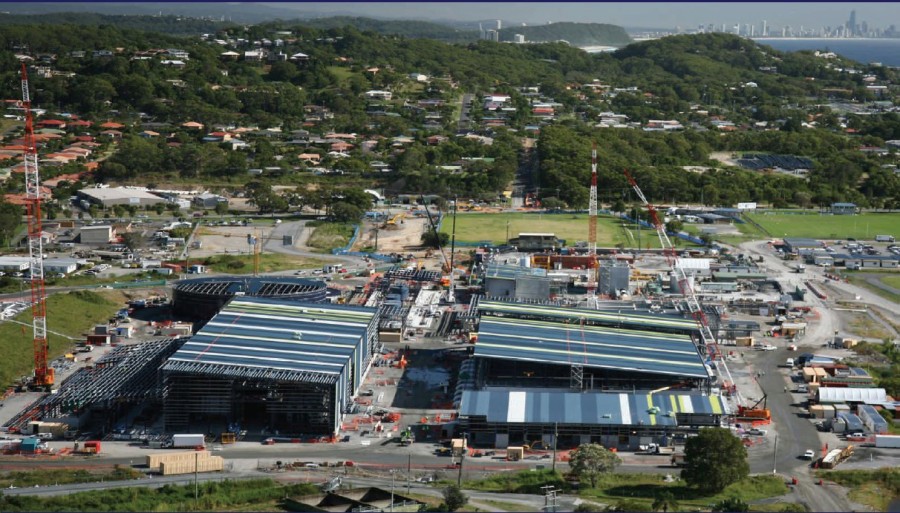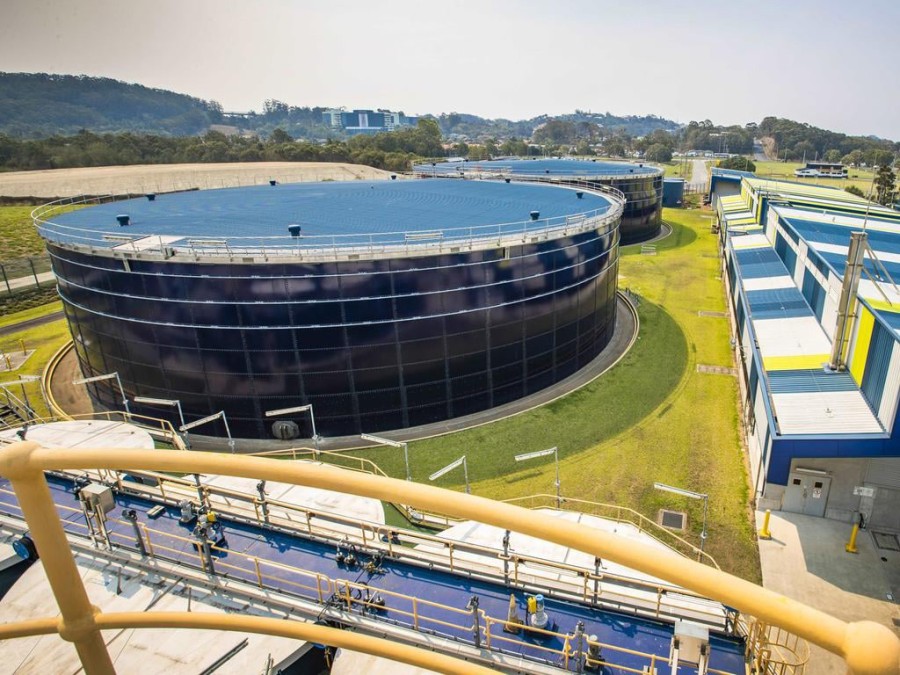Originally commissioned in 2009, the Gold Coast Desalination Plant in Tugun, in South East Queensland, Australia completed a comprehensive overhaul and repair of the plant’s key concrete structures in January 2021. The Penetron System of concrete waterproofing was specified to provide long-lasting protection and durability.
As the Earth's driest inhabited continent, Australia has suffered from chronic water shortages for decades. More recently, shortfalls in the water supply have been exacerbated by climate change and the devastating 2020 drought. While record rainfalls in Queensland, Australia late last year eased some of the water shortages, water security remains an acute issue for the region. Many communities continue to face water restrictions – with water supplies often brought into inland communities by tanker trucks.
The Gold Coast Desalination Plant is part of the Gold Coast Waterfuture Strategy and the State’s South East Queensland Regional Drought Strategy Contingency Supply Plan. The plant uses a reverse osmosis (RO) process to convert seawater into drinking water, with a daily production capacity of 133 million liters (35 million gallons). At maximum capacity, the plant supplies >665,000 Queensland residents with drinking water. As the largest seawater desalination plant on the east coast of Australia, it was named Global Membrane Desalination Plant of the Year by Global Water Intelligence when it was launched in 2009.
Cracked Water Tanks Require Repairs
Last year, the Gold Coast Desalination Alliance (GCDA), the plant operator, mandated the repair of cracks that had appeared in the concrete floors and walls in the plant’s large water storage tanks.
“Looking to ensure the long-term durability and sustainability of the desalination plant’s concrete structures, the GCDA required a durable waterproofing solution that would provide protection for many decades to come,” adds Jozef van Beeck, Director of International Sales & Marketing for The Penetron Group.
Ultimately, the Penetron System was specified for the repair of over 1,000 linear meters (3,300 feet) of cracks in the concrete water storage tanks of the Gold Coast Desalination Plant. A combination of PENEPLUG, a cementitious crystalline waterproofing rapid set waterplug, PENETRON, a cementitious crystalline waterproofing slurry, and PENECRETE MORTAR, a cementitious crystalline waterproofing mortar, was applied after the repair team routed out all visible cracks, leaks, and deteriorated concrete.
Permanently Sealing Concrete
Once applied to a prepared concrete surface, the proprietary chemicals in Penetron crystalline products react in a catalytic reaction to generate a non-soluble crystalline formation throughout the pores and capillary tracts of the concrete. These crystals permanently seal micro-cracks, pores, and capillaries against the penetration of water or liquids from any direction – making the concrete impermeable.
“The ease of application helped keep the repair work on schedule," concludes Jozef van Beeck. "The Penetron System turned out to be the ideal solution to provide the required waterproofing and durability for the Gold Coast Desalination Plant.”

Part of Australia’s Drought Strategy: The Gold Cost Desalination Plant uses a reverse osmosis process to convert seawater into drinking water, with a daily production of 35 million gallons.

Largest seawater desalination plant in eastern Australia: At maximum capacity, the Gold Coast Desalination Plant supplies over 665,000 Queensland residents with drinking water.



